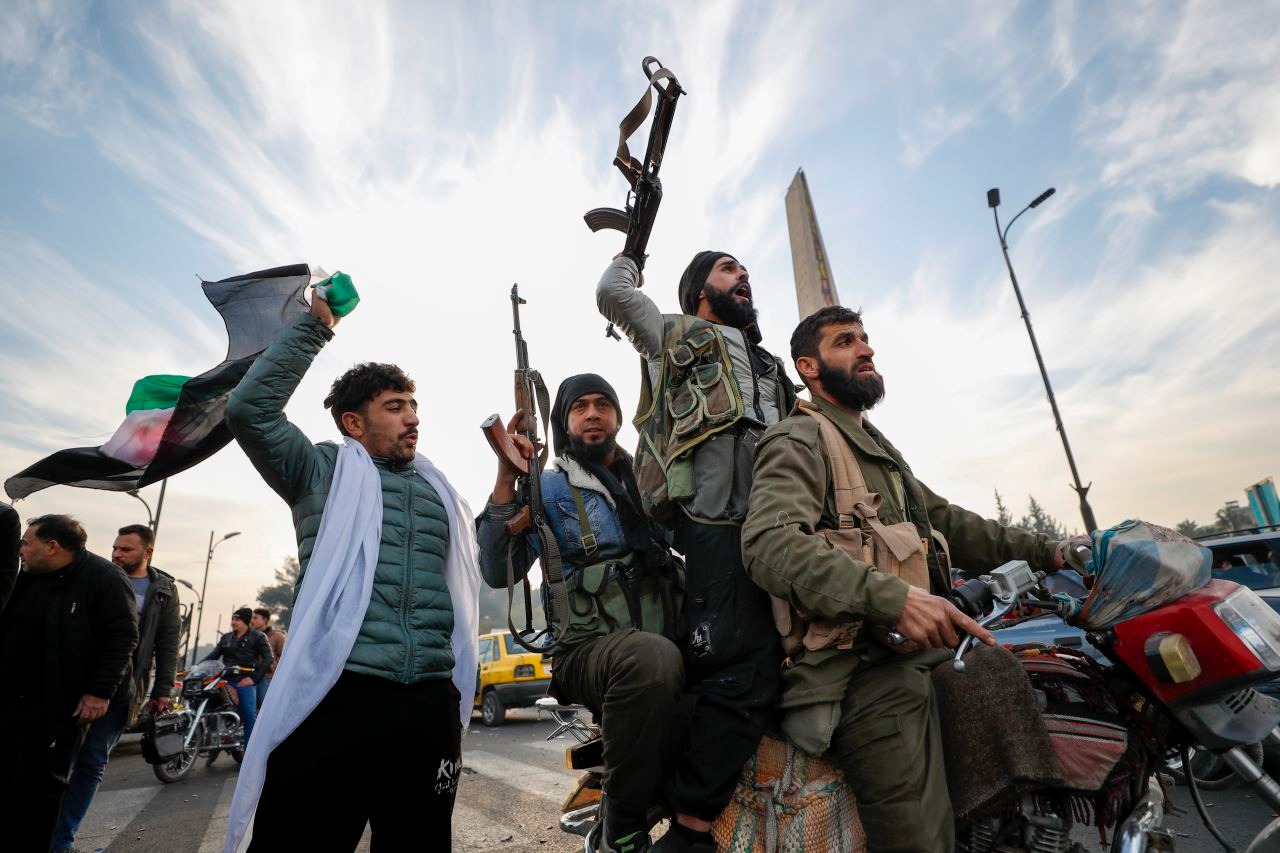
The 50-year-old rule of the Assad family in Syria collapsed in one stroke. President Bashar al-Assad had to flee the country and take political asylum in Russia. Although the period of rebellion and civil war in Syria has been going on for the last 13 years, but in the last 13 days the situation changed so fast that the Assad government could not handle it.
The rebels suddenly intensified their attack and captured the capital Damascus along with the major cities of Syria. In such a situation, the question is that what happened suddenly in the midst of the rebellion going on for 13 years that a coup happened in just 13 days. Let us know the whole story of the fall of Assad regime.
loose grip on power
After 13 years of civil war, Syria's opposition militias saw a chance to loosen President Bashar al-Assad's grip on power, reports news agency Reuters. About six months ago they told Turkey about plans for a major offensive and felt they had Turkey's tacit approval. Two sources with knowledge of the plan told the agency.
The initial goal of the campaign, launched about two weeks ago, was to capture Syria's second city, Aleppo, in which the rebels succeeded quickly and surprised everyone. From there, in less than a week, the rebel coalition reached Damascus and on Sunday ended five decades of rule of the Assad family.
major reasons for the coup
There were many important reasons that helped the anti-Assad forces to advance at a fast pace. The main ones among them are-
- The Syrian army was demoralized and exhausted.
- His main allies, Iran and Lebanon's Hezbollah, were severely weakened by the conflict with Israel.
- His other main military backer, Russia, was embroiled in a war with Ukraine and also losing interest in Syria.
The role of Türkiye
Sources, including a diplomat and a member of the Syrian opposition, told Reuters it was not possible for the rebels to move without informing Turkey, which has been the Syrian opposition's main backer since the early days of the war. Turkey has ground troops in northwestern Syria and supports some rebels, including the Syrian National Army (SNA). However, it regards the main faction in the coalition, Hayat Tahrir al-Sham (HTS), as a terrorist group.
The diplomat told the agency that the rebels' bold plan was the brainchild of HTS and its leader Ahmad al-Sharaa, better known as Abu Mohammad al-Golani. Golani has been designated a terrorist by Washington, Europe and Turkey because of his former ties to al-Qaeda. However, over the past decade, HTS, formerly known as the Nusra Front, has tried to soften its image.
Operation conducted with the help of Türkiye
A Syrian opposition source told Reuters that rebels had provided Turkey with detailed information about the plan. Hadi al-Bahra, the head of the internationally recognised Syrian opposition, told Reuters last week that HTS and the SNA had carried out limited planning together ahead of the operation and agreed not to confront each other and to seek cooperation.
He said the Turkish military observed what the armed groups were doing and discussing. Turkish Foreign Minister Hakan Fidan, speaking in Doha on Sunday, said Erdogan's attempts to contact Assad in recent months had failed and Turkey knew something was going to happen. However, Turkey's deputy foreign minister, Nuh Yilmaz, told a conference on Middle Eastern affairs in Bahrain on Saturday that Ankara was not behind the attack and did not give its consent, adding that it was worried about instability.
Assad was in a weak position
The rebels attacked when Assad was at his most vulnerable. Engrossed in wars elsewhere, his military allies Russia, Iran and Lebanon's Hezbollah failed to muster the kind of decisive force that had propped him up for years. Syria's weakened armed forces were unable to resist. One source told Reuters that tanks and planes had run out of fuel because of corruption and looting. It's an example of how hollow the Syrian state has become.
Morale in the army had fallen sharply in the past two years, the source told the agency. Aron Lund, a fellow at Middle East-focused think-tank Century International, told Reuters the HTS-led coalition had been stronger and more coherent than any previous rebel force during the war and was largely led by Abu Mohammad al-Golani. However, he said the regime's weakness was the deciding factor.
"After losing Aleppo like that, the regime's forces never recovered and the more the rebels advanced, the weaker Assad's forces became," he said. The rebels continued to advance, capturing Hama on December 5 and Homs nearby on Sunday. At the same time, government forces lost Damascus, which was far beyond expectations. "There was a window of opportunity, but nobody expected the regime to collapse so quickly. Everyone expected some fighting," Bassam al-Quwatli, chairman of the Syrian Liberal Party, a small opposition group based outside Syria, told the agency.
--Advertisement--

 Share
Share



